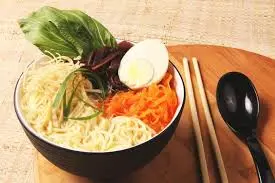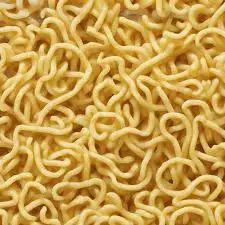Are you in the habit of consuming noodles frequently? It is advisable to cease this practice immediately, as it may lead to significant health issues.

When hunger arises, many individuals instinctively reach for a packet of instant noodles. These instant noodles are not only quick and easy to prepare but also provide immediate satisfaction for our hunger. They are a go-to option at any time of the day or night. Additionally, the appealing taste of noodles often draws people to them. However, one must question the health implications of a diet centered around instant noodles. The answer is unequivocally negative. Let us explore the reasons in detail.
Essential Nutritional Components in Noodles
Noodles lack essential nutritional components such as vitamins, minerals, protein, and fiber. Instead, they are primarily high in calories. Regular consumption of instant noodles can lead to serious health consequences.
They often contain monosodium glutamate (MSG). While the U.S. Food and Drug Administration (FDA) deems MSG generally safe for consumption, studies have indicated potential side effects. Research published in the American Journal of Clinical Nutrition suggests that excessive intake of MSG may result in issues such as weight gain, headaches, nausea, and elevated blood pressure.

Noodles are typically high in sodium. Excessive sodium intake can harm our organs and contribute to various health problems, including hypertension, heart disease, and stroke. Consequently, individuals with heart conditions should avoid these products.
Instant noodles are frequently made with maida, which is lower in fiber and essential nutrients compared to whole grains. Consuming large quantities of maida can lead to spikes in blood sugar levels. Diets high in carbohydrates can also contribute to obesity, metabolic syndrome, and type 2 diabetes.

Noodles often contain unhealthy fats, including saturated and trans fats. These fats can elevate LDL (bad) cholesterol levels, increasing the risk of fatty deposits in the arteries, heart attacks, and strokes.
Additionally, noodles may contain harmful preservatives such as tertiary butylhydroquinone.
While instant noodles may be a convenient and tasty option, their frequent consumption poses significant health risks. It is crucial to prioritize healthier alternatives, such as home-cooked meals with whole grains, vegetables, and lean proteins. Making mindful dietary choices can go a long way in preserving your long-term health and well-being.
Belly Fat – 10 Powerful Fruits To Reduce Belly Fat
Are noodles healthy or unhealthy?
Generally noodles considered unhealthy
Is noodles a junk food?
Often considered junk food
Are noodles better than rice?
Rice is superior in terms of lower calorie and carbohydrate content. However, if the focus is on protein and fiber intake, pasta is the better choice compared to rice. Nevertheless, both rice and pasta can contribute positively to a balanced diet, and given that their nutritional differences are relatively minor, the decision often hinges on personal preference.
